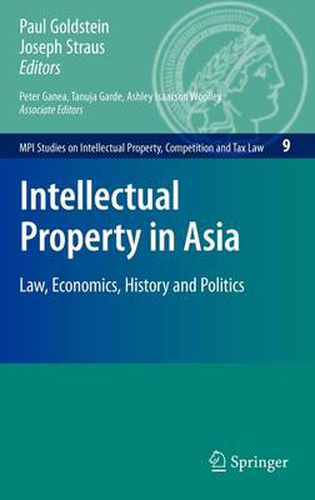Readings Newsletter
Become a Readings Member to make your shopping experience even easier.
Sign in or sign up for free!
You’re not far away from qualifying for FREE standard shipping within Australia
You’ve qualified for FREE standard shipping within Australia
The cart is loading…






This title is printed to order. This book may have been self-published. If so, we cannot guarantee the quality of the content. In the main most books will have gone through the editing process however some may not. We therefore suggest that you be aware of this before ordering this book. If in doubt check either the author or publisher’s details as we are unable to accept any returns unless they are faulty. Please contact us if you have any questions.
Introduction Intellectual property rights foster innovation. But if, as it surely does, intellectual property means not just intellectual property rules-the law of patents, copyrights, trademarks, designs, trade secrets, and unfair competition-but also intellectual property institutions-the courts, police, regulatory agencies, and collecting soc- ties that administer these rules-what are the respective roles of intellectual property rules and institutions in fostering creativity? And, to what extent do forces outside intellectual property rules and institutions-economics, culture, politics, history-also contribute to innovation? Is it possible that these other factors so overwhelm the impact of intellectual property regimes that it is futile to expect adjustments in intellectual property rules and institutions to alter patterns of inno- tion and, ultimately, economic development? It was to address these questions in the most dynamic region of the world today, Asia, that we invited leading country experts to contribute studies that not only summarize the current condition of intellectual property regimes in countries ranging in economic size from Cambodia to Japan, and in population from Laos to China, but that also describe the historical sources of these laws and institutions; the realities of intellectual property enforcement in the marketplace; and the political, economic, educational, and scientific infrastructures that sustain and direct inve- ment in innovative activity. A.
$9.00 standard shipping within Australia
FREE standard shipping within Australia for orders over $100.00
Express & International shipping calculated at checkout
This title is printed to order. This book may have been self-published. If so, we cannot guarantee the quality of the content. In the main most books will have gone through the editing process however some may not. We therefore suggest that you be aware of this before ordering this book. If in doubt check either the author or publisher’s details as we are unable to accept any returns unless they are faulty. Please contact us if you have any questions.
Introduction Intellectual property rights foster innovation. But if, as it surely does, intellectual property means not just intellectual property rules-the law of patents, copyrights, trademarks, designs, trade secrets, and unfair competition-but also intellectual property institutions-the courts, police, regulatory agencies, and collecting soc- ties that administer these rules-what are the respective roles of intellectual property rules and institutions in fostering creativity? And, to what extent do forces outside intellectual property rules and institutions-economics, culture, politics, history-also contribute to innovation? Is it possible that these other factors so overwhelm the impact of intellectual property regimes that it is futile to expect adjustments in intellectual property rules and institutions to alter patterns of inno- tion and, ultimately, economic development? It was to address these questions in the most dynamic region of the world today, Asia, that we invited leading country experts to contribute studies that not only summarize the current condition of intellectual property regimes in countries ranging in economic size from Cambodia to Japan, and in population from Laos to China, but that also describe the historical sources of these laws and institutions; the realities of intellectual property enforcement in the marketplace; and the political, economic, educational, and scientific infrastructures that sustain and direct inve- ment in innovative activity. A.